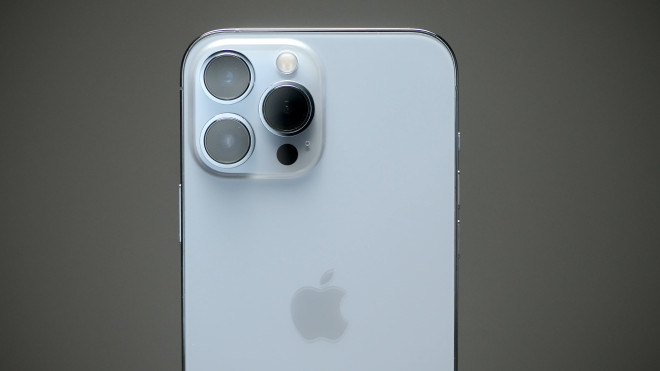Picture this: As you're walking into a supermarket, you're immediately questioned about your shopping list, address, and cellphone. You answer everything faithfully and a shopping clerk bolts through the store, marking up every product ever so slightly– because you live in a wealthy neighborhood, have the latest iPhone, and are looking for a good wine to go with your dinner tonight. The clerk also makes sure to always move the most expensive items to the front of each display. Sounds weird, right? That's exactly what can happen to you when you're shopping online!

What is dynamic pricing?
You'd be surprised how much online prices fluctuate based on supply and demand, trends, production shortages, the seasons, even current world affairs–with the general goal being profit maximization, of course. We tend to only notice abrupt and major changes, but there's a more personal side to today's product pricing: you, or more exactly, your (potential) spending behavior past, present, and future. As long as this data is only used to not show you a new swimming pool or toilet seat along with your purchase, no biggie–these are not exactly sought-after collector's items, after all. But more often than not, the data is used to "optimize" prices or incentivize purchases. Let's take a closer look at the factors that come into play here.
For everything there is a season, including prices
We all know the rollercoaster ride that is gasoline prices, but what about car batteries? Pause for a moment and think about when people usually notice their batteries have broken down. In the morning, right? Consumer reports indeed revealed that batteries, and tires, are 30% more expensive before 12 p.m. compared to the rest of the day. These fluctuations aren't manual adjustments but controlled by algorithms that continuously calculate supply and demand. Your best bet for deals: Anti-cyclical shopping. How about a new AC for Christmas and a cozy fur coat in July? Low demand, or pending product line discontinuation / refresh, usually equals cheaper prices.
Cookies: Useful, convenient–costly?
Cookies are tiny information retainers that speed up our log-ins and help providers show personally relevant information–including past purchases. Naturally, they can also be used to store user profiles, purchase histories, locations, interests, and any other information that can be used to "augment", some would say replace, your searches with particularly pricey or trendy results. And it's not just potential purchasing power per country but also individual location that affects pricing. If you happen to live in Los Altos Hills, California, you'll likely have a higher income at your disposal than the average Detroiter–and this will be reflected in the prices you see.
 Do only the rich own iPhones?
Do only the rich own iPhones?
Are iPhone users more wealthy?
iPhone users are not rich per se, but they'll probably have spent more on their device than most Android users. Apple has a reputation for attracting customers with more money to spend, which is why some online stores will knock up prices a little as soon as they identify your web surfing device as Apple-made. Likewise, visitors using Android or Windows-based devices often see slightly lower prices–as was reported for online-based hotel booking and travel portals. Why not try the following yourself: Visit your online travel agency of choice, first with your smartphone, and then with your Windows or Apple device, ideally using your browser's incognito mode. Do you see any difference in price?
Putting it to the test
A colleague was looking for a small apartment by the Danube river to unwind for a couple of days. She found a suitable deal for €495 while visiting a major online booking portal using her iPhone. At my request, she visited the same site on her PC and, believe it or not, the deal was now available for €475–a price difference of a full €20. Others told me the difference got even bigger when they were searching via VPN or had recently deleted their cookies. It's worth looking twice (at prices that is, and using different devices).
What can you do?
In this case, privacy and anonymity are not priceless but price critical. It literally pays to stay anonymous and use "cheaper" devices and operating systems i.e., Windows, Android, or Linux. Incognito modes, as present in all modern browsers and frequent cookie blocking / deletion may also help. And there are various browser extensions that promise to limit data sharing with visited websites. Starting in May 2022, online store owners within the EU are obliged to notify visitors when personalized pricing, whether powered by individualized data sets or algorithms, applies!




The temptation to mark up items in any owner run store may be hard to detect, but using a great shopping service (Instacart), and having the need for my groceries to be delivered, has been vital to maintaining my health. It has become a bi-weekly to-do list starter. They remember what I ordered, they communicate with me in real time, they now have seasoned shoppers at all the markets I can use in my area, and there's only been a couple of times when things didn't go as planned (but not in the last year) and they made a satisfactory response every time; in fact, their text chat support is excellent. The fees are paid annually and per order, and are fair, compared to hiring a private taxi service to drive to the market, wait while I shopped and then drove me home; with tip, it would be half as expensive as the groceries. I also tried grubhub, and since I do not enjoy eating out in general, I lost interest in it. It would be more suited to a young, busy person. As for groceries, it's a total bargain to use the shopping service.
I just want to say that martin helped me with resolving my issue with getting my software to work. Great job! I have done business with shampoo for at least 20 years. Great company, great software. Thanks. Robert. Lawrence, poseidonslocker@gmail.com
I noticed the diference in prices when I was browsing at work to when I was at home so now I use the VPN to get better prices.
I found that if you watch an item on eBay very often you get messaged with a lower price and sites like Amazon price tracker can notify you when an item you're interested in drops in price.
Never buy anything in the morning - always after 13:00.
Very informative. Thank you for posting.
I've observed this phenomena while browsing Amazon for a product. When I wasn't sure which item I wanted to purchase and returned to an item for comparison sometimes the cost had changed. I chalked it up to AZ sensing a heightened interest so I would be willing to pay more.